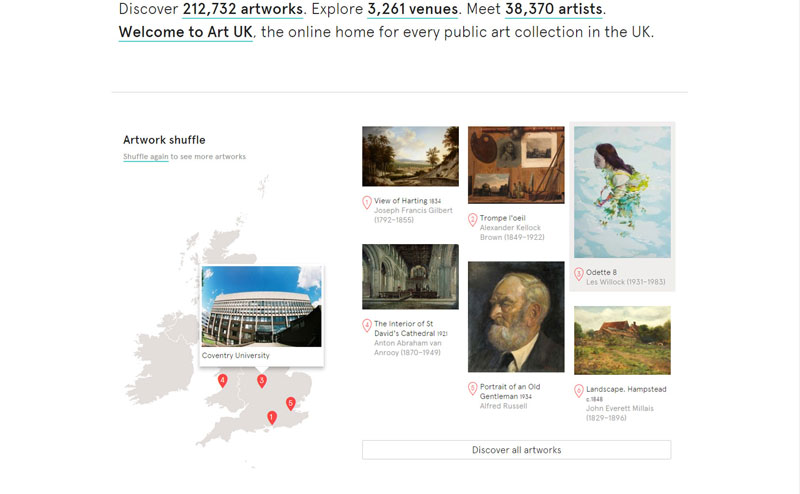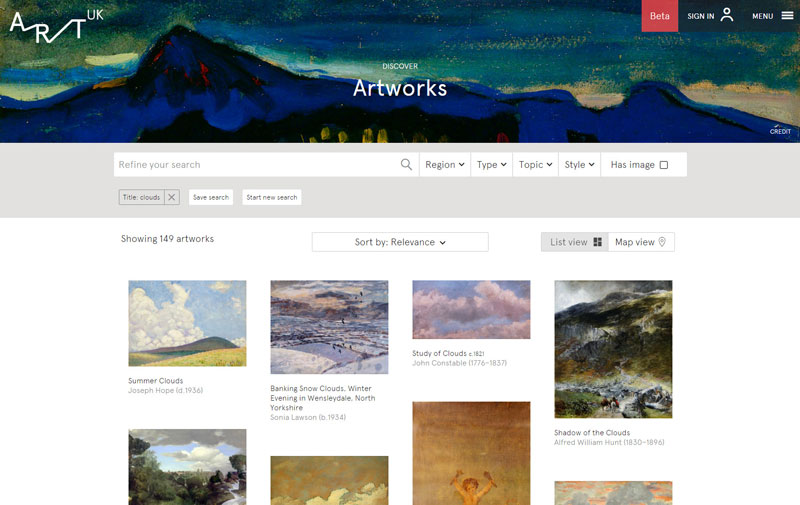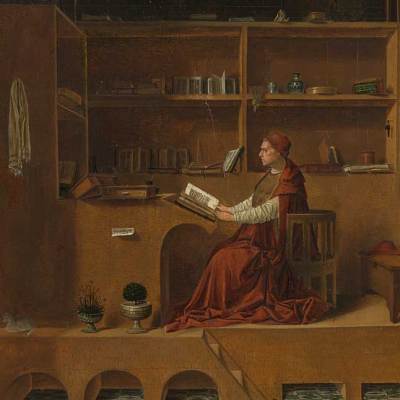From today, British public collections will be more accessible that ever before. The launch of Art UK means that not only are the 212,732 publicly owned oil paintings in the UK available to view online, but that works on paper in many collections and, from 2017, sculpture in museums, civic buildings and other public spaces will be free to access in one digital resource.
Art UK is the most ambitious project to date of the Public Catalogue Foundation (the PCF; itself now renamed Art UK), a registered charity founded in 2002 with the aim of publishing all the oil paintings in public ownership in the United Kingdom. Some 90 per cent of these had never been photographed at the time; they appeared in 85 volumes over the course of a decade, with the final volume published in 2012.
But in a sense, it was a partnership with the BBC that so prominently pushed the project into the public domain: the Your Paintings website, which was hosted by bbc.co.uk and which has now been superseded by artuk.org, showed the imaginative potential of such a public catalogue for curators, art professionals, and above all the wider public. The site boasted an audience of around 300,000 visitors per month.
Art UK Artwork Shuffle page

The Art UK site is another leap forward – more, really, for what it makes possible in years to come than for the smart new website itself. Partner collections – there are some 3,000 of them – will be able to upload digital images of watercolours, drawings and prints in their collections (and let’s hope they have the resources to do so), giving the public access to many works that can only intermittently be displayed. And, following initial efforts by the PCF and the Public Monuments and Sculpture Association (PMSA) to secure funding in 2014, Art UK is now able to press ahead with photographing an estimated 100,000 sculptures, some being recorded using 3D scanning technology. The Heritage Lottery Foundation has now set aside £2.8 million for this project; the fanfare that will greet today’s launch may encourage further donors.
At a time when numerous public collections in the UK are threatened by local-authority cuts, a project that heightens access to, and awareness of publicly owned art is not only timely but also forceful. Aside from promoting smaller collections that may have struggled to gain national exposure, the new site will allow museums and other institutions to sell merchandise, such as print-on-demand posters of works in their holdings. Away from the BBC website, with its strictures about commercial partnerships, Art UK will better be able to leverage corporate sponsors and other donors to raise the revenue needed to drive the project forward.
This is an archive that need not discriminate between artworks according to quality, but is rather a testament to the full spectrum of art that has entered public collections, and a monument to the fluctuating historical, regional, and private tastes that have informed the national collection. A search is as likely to throw up a curiosity in a hospital collection as it is a masterpiece in the National Gallery. Besides public collections, the site also includes images of a number of collections not in public ownership – such as bishops’ palaces and Oxbridge colleges. (All Oxford colleges have permitted the use of their collections; let’s hope that those Cambridge colleges that have rebuffed Art UK get over themselves, and quickly.)
Art UK Search results

But this is not simply a database of images. It is an archive of information, and an opportunity to see that information mature into knowledge. As the archive grows, tools such as the ‘Art Detective’ forum will continue to allow for the sharing of ideas between art historians (and others); on the previous website, the function has already led to a number of attributions and other discoveries. Curators will be able to cross-reference paintings with works on paper in public collections, drawings with sculptures, and so on; the archive is more likely than ever to act as a springboard for future exhibitions and publications. And the new site also links through to Oxford University Press resources, including artists’ biographies on Grove Art Online – all of which can be accessed with nothing more than a local-authority library card number (would that more people knew about this).
Art UK asks its users to participate in advancing knowledge of the nation’s collections. If it also reinforces our sense of ownership of those collections, and underscores their inestimable public worth, then it will be of immense value to us all.



